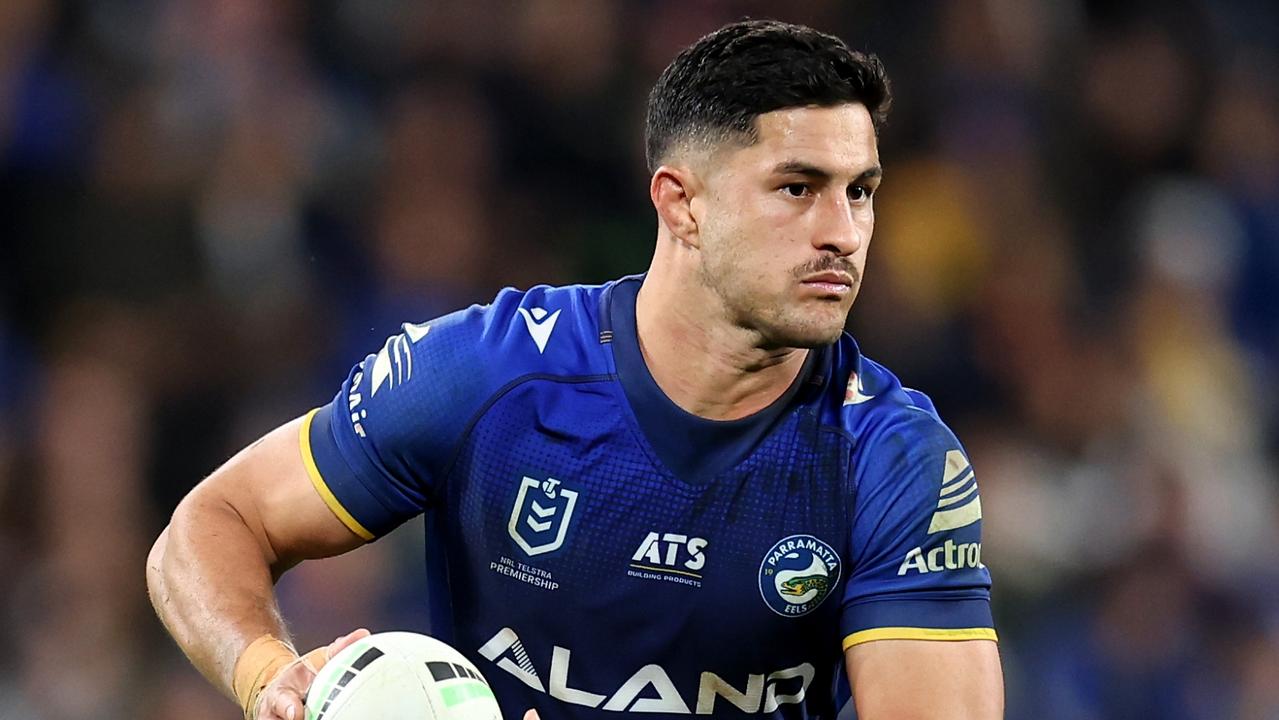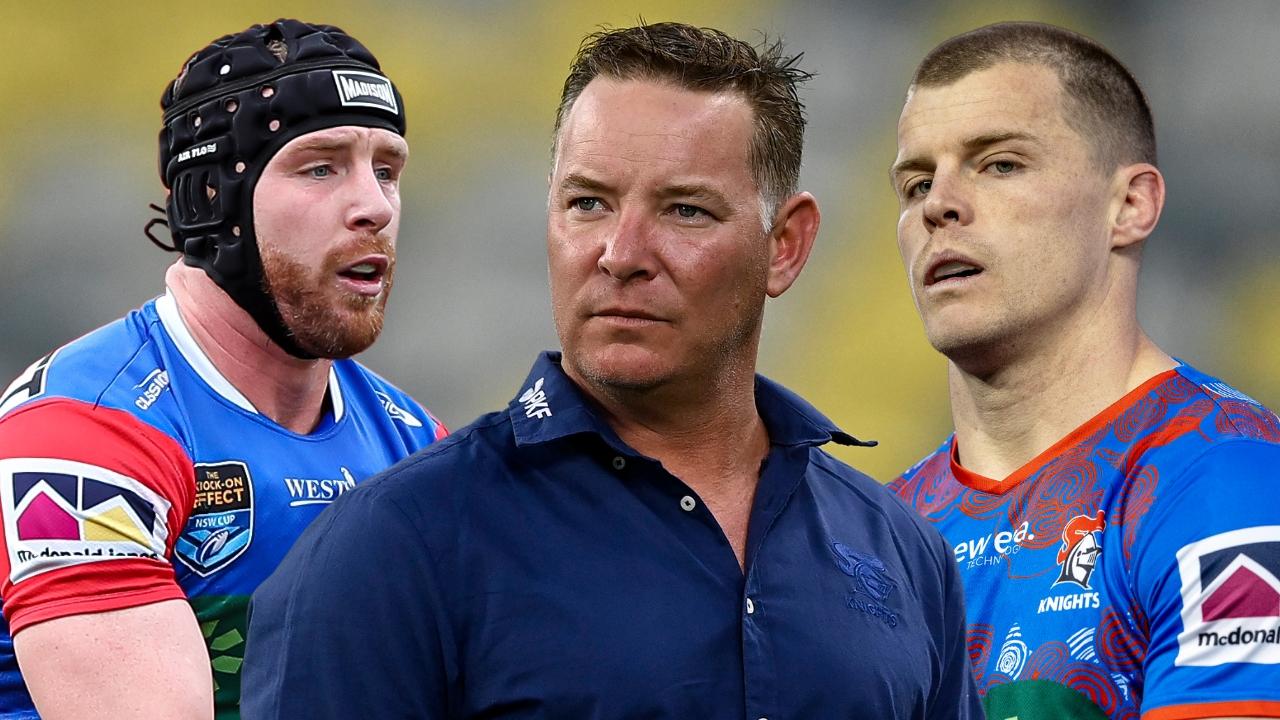Paul Kent: Clueless coach-killing clubs prove they refuse to learn from their mistakes
Rather than pursuing ersatz versions of successful coaches, struggling clubs could do worse than reach out to those that have proved they can do it their own way, writes Paul Kent.
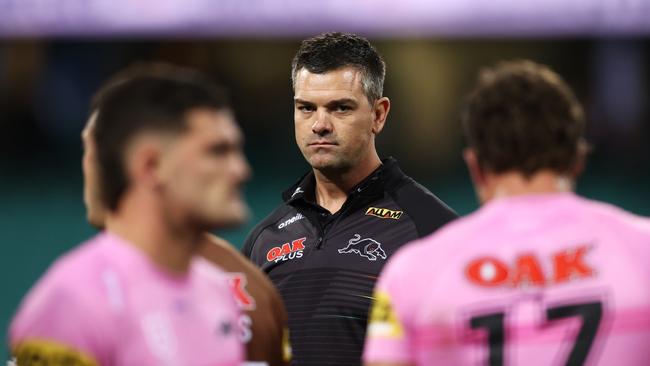
NRL
Don't miss out on the headlines from NRL. Followed categories will be added to My News.
When Jack Gibson told us winning starts in the front office everybody nodded their head knowingly, brows properly furrowed in confirmation, and then many went on to show they didn’t really know what old Jack was talking about at all.
He had an ability to make the simple seem profound, Jack, and yet as it turned out it still fooled many.
Come to think of it, something Jack didn’t say about the front office, which he also could have said, is that their biggest danger is if they don’t know what they don’t know.
Stream every game of every round of the 2022 NRL Telstra Premiership Season Live & Ad-Break Free During Play on Kayo. New to Kayo? Try 14-days free now.
This little nugget of wisdom happens in many areas of life, particularly the specialised ones, but rugby league seems to be doing a pretty good job of showing it does it better than anybody.
Dare suggest a club boss might not know what he is doing and his feelings quickly become hurt, usually before he offloads a coach but cleverly hiring a buffer in between, like it will make a difference.
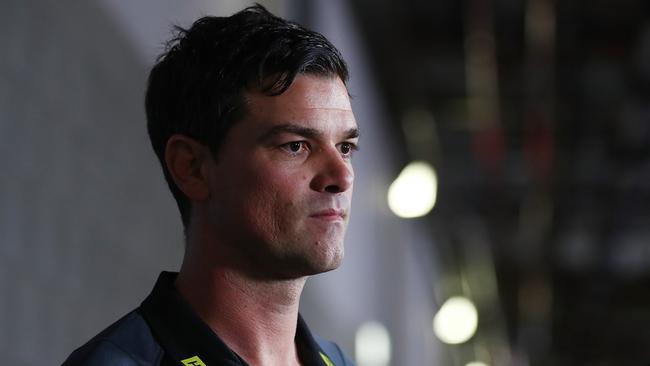
Ah, but it will when it comes time to accountability and blame, they know in the fine print.
Still, as some struggling clubs continue to make questionable decisions, and head in questionable directions, if there is blue sky to emerge it is that at least the coaches are getting smarter.
Warriors owner Mark Robinson flew to England earlier this month to woo St Helens coach Kristian Woolf and came back with a contract still blank.
Woolf probably needed to look only at the fact Robinson agreed to pay recently released Matt Lodge his entire contract for next season, with the whole lot on the salary cap, to know the Warriors probably weren’t the club for him.
Woolf is also said to be in talks with Canterbury, who looked to finally get its program in some order when Phil Gould was hired, but after telling everybody his phone was ringing “off the hook” a day after he sacked Trent Barrett, Gould revised his version some weeks later to say he still hadn’t spoken to anybody yet.
What Woolf makes of that, if he ever does speak to Gould, remains to be seen.
The Tigers were privately declaring to everybody last week that Cameron Ciraldo was all but signed, the front office so confident they had their man they were later forced to put out a statement announcing Ciraldo had knocked back the five-year offer to coach the club after it emerged they didn’t have him after all.
Just when you thought you had seen it all, there was a rugby league first.
Ciraldo and Woolf are the two bright prospects in the coaching world, so say the reports, but already they are proving too smart for some clubs.
Their reputations as “Next Man Up” fill the position Barrett occupied when he was an assistant at Penrith or that Anthony Seibold had as assistant at Souths or that Garth Brennan had when he was coaching juniors at Penrith, or Jason Taylor had at Wests …
And so a pattern begins.
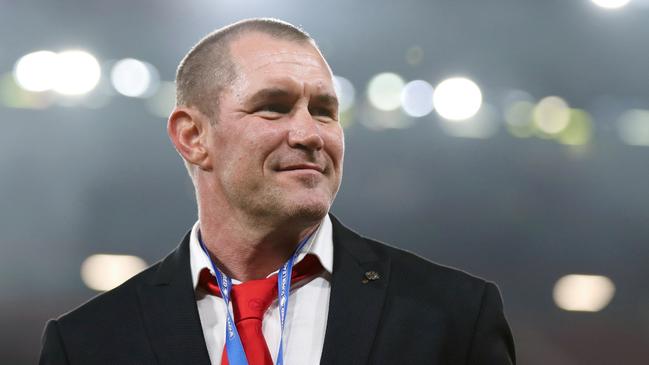
What this suggests about all three clubs, who have failed through multiple coaches, is that the coach might not be the problem.
For some years now these clubs have followed the same patterns when considering their options and have continued to make the same mistakes.
It might be worth considering the game is experiencing a lack of coaches and it might be the clubs’ fault. Head coaches teach the assistants, after all, and the junior coaches, and commonly in the style they have brought in from another club.
Individual thought has disappeared.
When Gibson won three premierships from 1981-83, he did it with a completely different style than Warren Ryan did in 1984-85.
Bob Fulton brought a different style in 1987 as did Gould in 1988 and Tim Sheens in 1989.
Nowadays, new coaches arrive at struggling clubs to coach the same style that worked at better programs, with better players, and when it fails, the clubs simply change the coach.
Some clubs, run too often by administrators guarding their lofty position, don’t have the courage to dare to succeed, preferring to save their job.
The Walker brothers, Shane and Ben, coach a style that is completely different to how the game is coached at NRL level and nobody is prepared to take a chance on them.
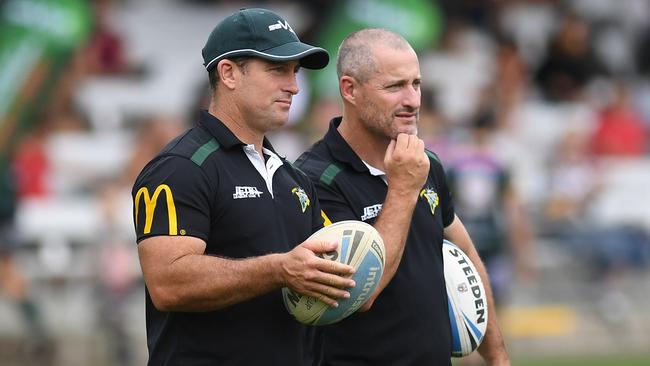
The smarties at the NRL clubs pay no attention to the fact that when they took over Ipswich, with the lowest salary in the Queensland Cup and, with a style developed of their own, they were able to overcome all that and coach around it, winning the premiership.
If that shouldn’t be an encouragement for three clubs looking for coaches, struggling to get up the ladder while struggling to recruit talent without paying overs on the salary cap, then what are those club bosses actually doing?
Naturally, no guarantee can be given they will succeed but, at very least, they would be a point of difference from so many newly promoted coaches assistant coaching a diluted form of footy learned at the stronger clubs, which keep producing the same results.
And all around this Paul Green and Shane Flanagan are proven premiership-winning coaches, highly available and falling asleep next to their phones at night, and yet neither of them has been the first choice at all three struggling clubs looking for their new coach.
If the answer isn’t clear somewhere there, do these club bosses know what they don’t know?
More Coverage
Originally published as Paul Kent: Clueless coach-killing clubs prove they refuse to learn from their mistakes




